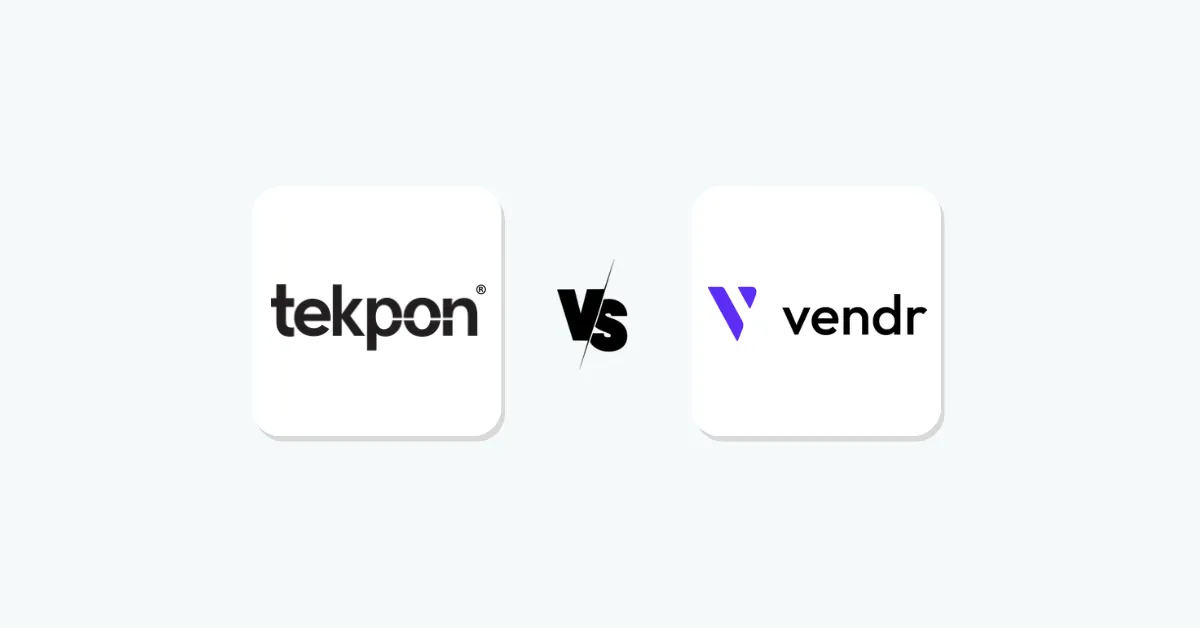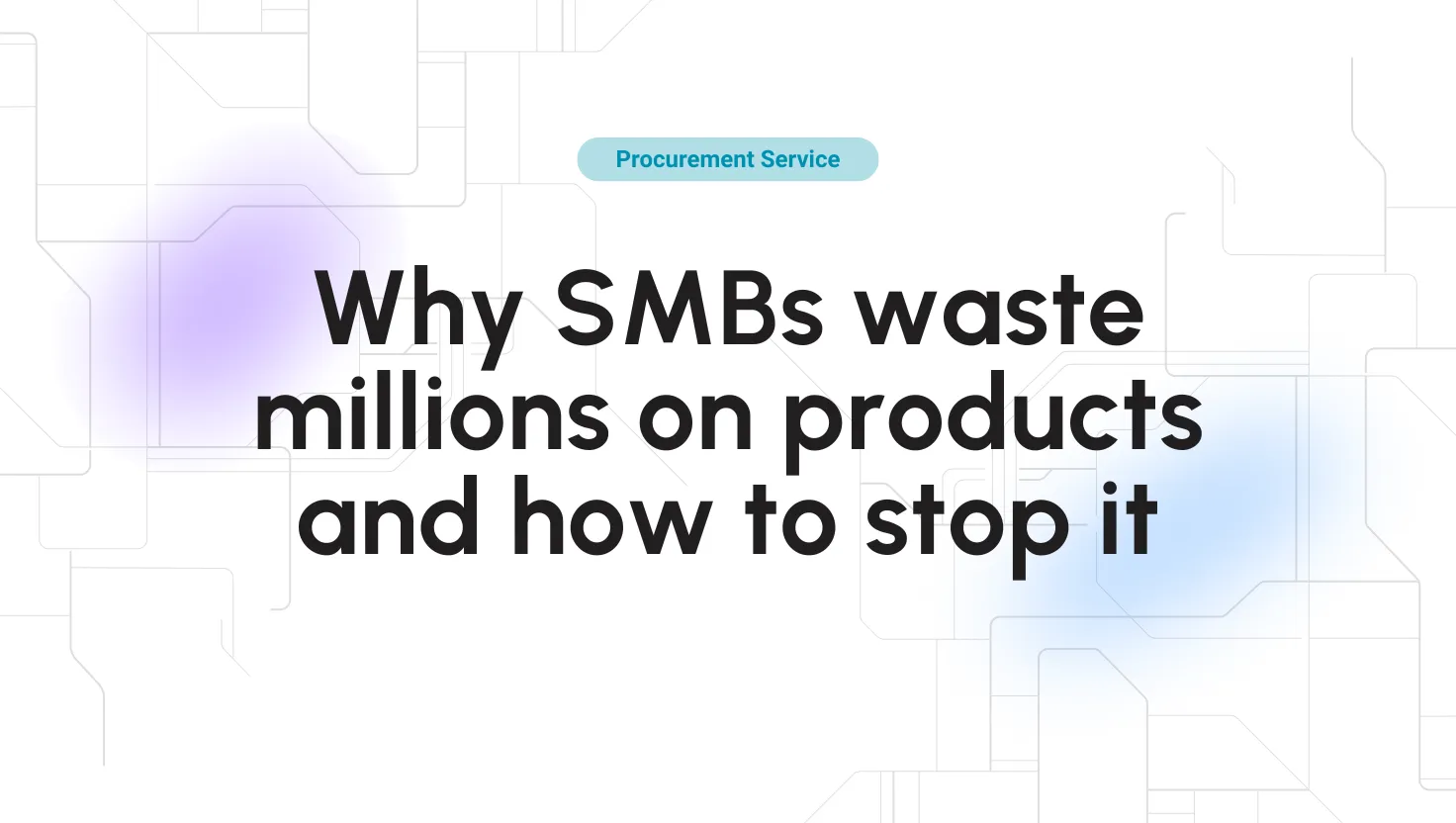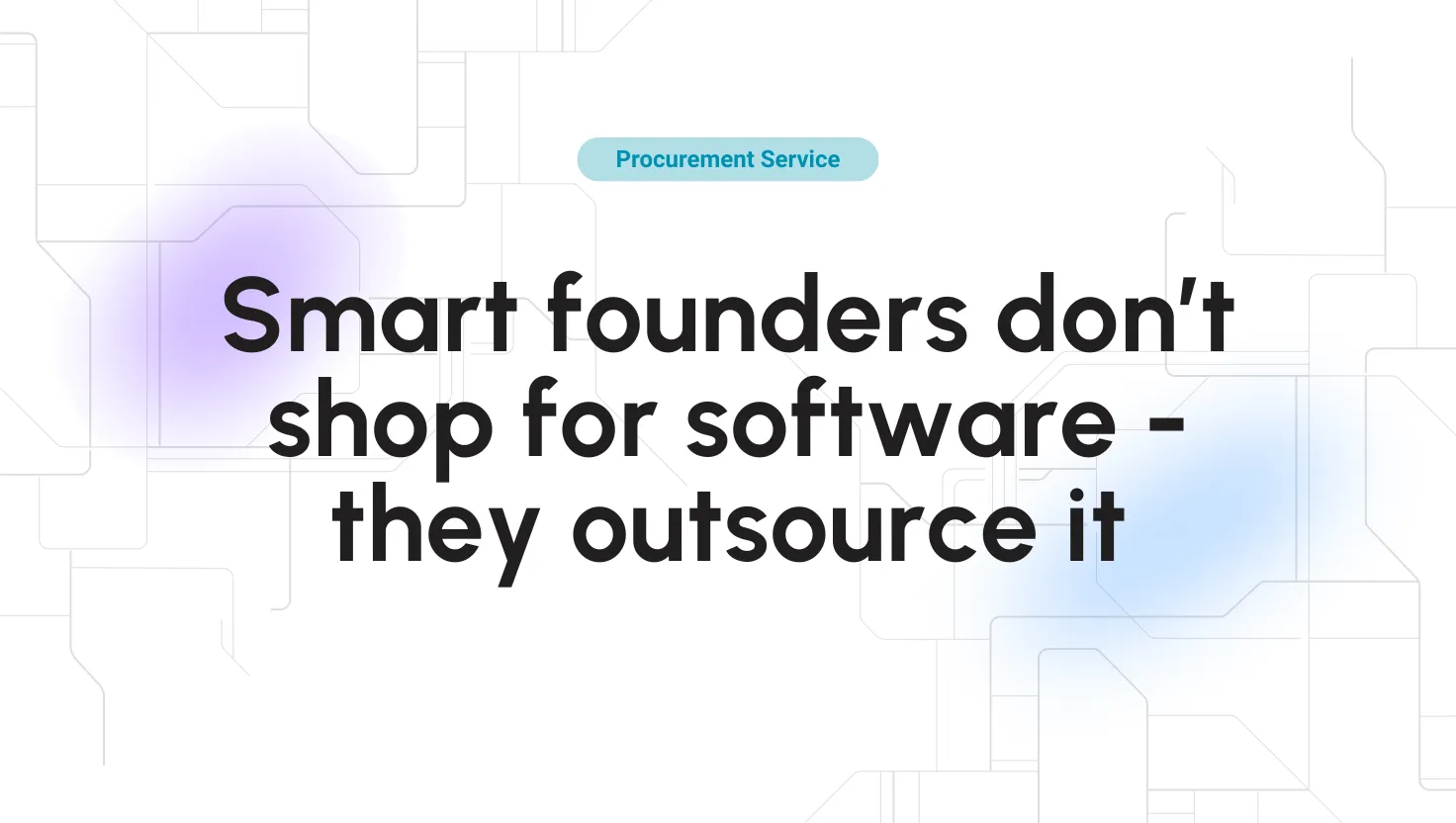I spend a lot of time looking at how companies buy software. And here’s the truth: what works for a Fortune 500 doesn’t work for a 5-person startup. That’s why comparing Tekpon vs Vendr isn’t just about features; it’s about who they’re really built for.
On one hand, startups wrestle with tight budgets, too many apps, and not enough time to negotiate. Enterprises, on the other hand, juggle millions in spend and complex approval chains.
And because I think there is enough space for all of us, an honest comparison didn’t hurt anybody, especially when the goal is common, yet the target is different.
What is clear to me is that if you’re leading a growing business, the procurement service you choose isn’t just about saving money. It’s about finding a partner who understands your stage, your challenges, and the reality of how your team buys software.
Audience focus: SMBs vs. Enterprise
Tekpon’s plans target small to medium-sized businesses and lean teams. The entry‑level “Start” package is ideal for solopreneurs and lean teams buying a few essential tools. The Step‑Up “Scale” plan serves growing teams (up to 50 purchases a year), and “Strategy” suits scaling companies with unlimited purchases.
Your next SaaS invoice could be smaller. Find out how.
Overall, I think the structure and marketing clearly show that we are building products for smaller companies with modest SaaS spend, as well as for medium-sized ones.
But somebody has to look out for these guys, no? There are plenty of services out there for enterprises and corporations.
But let me be clear here. We can go even for the moon, yet we like to be with our feet on the ground and help those who need it the most.
Vendr positions itself as a “best damn procurement platform” processing billions in SaaS spend for hundreds of customers.
Damn.
Its pricing plans start at roughly $36,000/year for companies spending $400K–$1M on SaaS, and scale into six figures for larger spend. That pricing alone puts Vendr in enterprise territory.
In short, Vendr is geared toward mid‑market and corporate buyers, not cash‑strapped startups.
Tekpon vs Vendr: pricing transparency & accessibility
Tekpon’s pricing is straightforward. All plans are flat annual fees: the Start plan is $3,000/year, the Scale plan is $5,000/year, and the Strategy plan is $12,000/year. For example, even the entry plan includes “direct vendor negotiation” and benchmarking data.
There are no surprises: our costs are fixed and transparent, making it easy for small budgets to justify.
Vendr’s pricing is more complex and expensive. Vendr itself advertises a “Free for Everyone” base tier (with limited features), but its core procurement services come through paid plans and add‑ons.
Vendr’s Starter plan costs $36,000/year (with savings guarantees) and climbs to $78,000 or $120,000 at higher spend levels.
Vendr’s complete feature set requires add-ons: Premium Intelligence ($25K–$95K/year) and Premium Negotiation($40K–$140K/year). This means a growing company might end up paying tens of thousands or more.
Vendr’s model is powerful but very pricey – a potential barrier for SMBs, not talking about small companies or even start-ups.
Support model: Dedicated advisors vs. Automated platform
Tekpon – Human‑led serviceWe are Tekpon. And we care about human touch. We are a software marketplace with an extra human-led buying service. Customers can work one‑on‑one with expert advisors. Even the highest plan promises a “dedicated expert buyer” as a point of contact.
Procurement process
Tekpon’s procurement process begins with a 1:1 discovery call to understand your needs, followed by a team researching the best-fit tools for your use case.
In short, you get all our attention: your Tekpon advisor handles vendor negotiation, custom deal-sourcing, and ongoing stack strategy.
Vendr – Platform-driven workflowsVendr leans more on software-driven processes. Its core offering is an automated procurement workflow that integrates with tools like Slack and SSO to route purchase approvals quickly.
Vendr does offer human expertise in the form of add-on support: for example, you can pay extra for “Premium Negotiation Support”, where Vendr’s team will handle negotiations for you.
But unlike Tekpon, Vendr’s model is primarily a SaaS platform. Companies fill requests into Vendr’s system and can tap into resources like vendor intelligence and internal workflows.
In simple words, that means less white-glove hand-holding. Vendr’s pitch is efficiency at scale – which suits bigger procurement departments, but may feel impersonal to a small team wanting a single point of contact.
Delivery & Personalization of your stack
Speed and personalization are the lait-motives of Tekpon’s approach. In my words, this means you get a tailored package of software suggestions and negotiated discounts all laid out for you. For many SMB customers, this discovery-driven, hands-on service can shrink the procurement cycle dramatically.
You’re not left to navigate the platform alone or sort through integrations.
Vendr’s workflows aim to speed approvals in complex environments (e.g., notifications and reminders for stakeholders). It also provides analytics on renewals, usage, and vendor performance.
However, this thoroughness can translate into longer timelines, especially for smaller deals. Vendr is built to integrate with large orgs and often ties into finance/IT systems. Its strength is in consolidating and optimizing existing spend rather than scouting new apps.
Tekpon vs Vendr: vendor neutrality & discovery approach
The foundation of Tekpon has always been honesty. While our marketplace includes affiliate partnerships with some software tools, our procurement service is entirely independent; we don’t take commissions or vendor incentives that could influence our recommendations.
Every deal we negotiate is driven solely by what’s best for your business.
Combined with the discovery methodology (1:1 calls and research), Tekpon is designed to uncover solutions you might not find on your own. In effect, we serve as an unbiased advisor to explore and negotiate on your behalf.
Every renewal you skip is money left on the table. Fix that.
Vendr, on the other hand, builds partnerships with hundreds of vendors and leverages a pricing database. It often guarantees savings (e.g., money-back commitments in contract renewals).
While Vendr provides transparency into market rates, its model can include vendor-supplied deal funding or preferred pricing. That’s standard in enterprise procurement, but it means Vendr is not truly independent in the same way.
Businesses should be aware that Vendr’s recommendations may be influenced by existing vendor relationships or platform incentives.
This distinction matters most to startups or SMBs who need confidence they’re getting the best deal, not just competitive rates.
Verdict: Tekpon or Vendr?
For SMB’s, small businesses, and startups, Tekpon is generally the better fit. Its transparent, affordable pricing and one-on-one service model are tailored to SMB budgets and decision-making styles.
You benefit from a dedicated buyer advocate who can quickly assemble a customized SaaS stack, negotiate discounts, and do the heavy lifting. Tekpon’s independence means you can trust its recommendations are aligned with your needs, not a vendor’s sales pitch.
Vendr shines in the mid-market to enterprise space. It’s a powerful platform for organizations managing thousands of licenses and complicated approval chains. If your company spends millions on SaaS and already has procurement processes in place, Vendr’s automation, analytics, and negotiated savings guarantees may justify its high cost.
Larger firms will appreciate Vendr’s full-service approach to vendor management and renewal optimization.
If you’re an SMB founder or decision-maker, consider starting with Tekpon’s transparent plans. You can even talk to a Tekpon advisor about your needs or explore their pricing page to see which package fits your budget.
In any case, weigh the above factors carefully: the exemplary procurement service can save your company time and money, but only if it matches your size, budget, and style of working.




